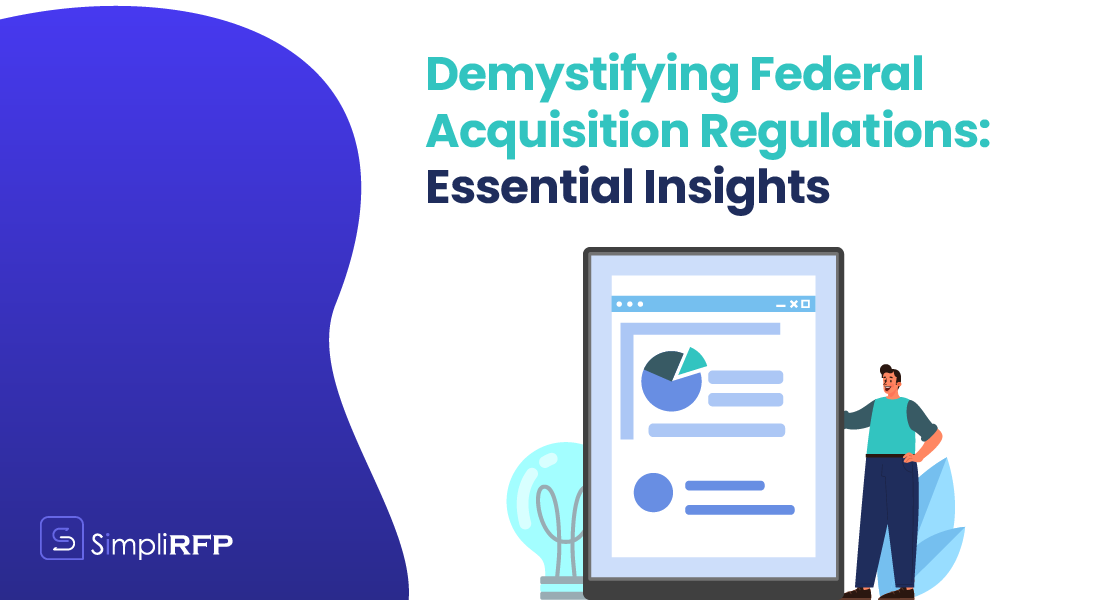Demystifying Federal Acquisition Regulations: Essential Insights

Navigating the intricate web of Federal Acquisition Regulations (FAR) is a crucial aspect of succeeding in government contracting. Yet, for many businesses, understanding and complying with FAR can be a daunting task. In this comprehensive guide, we aim to demystify FAR by providing essential insights and actionable tips to help businesses navigate this complex regulatory framework with confidence. Whether you’re a seasoned contractor or new to government procurement, this guide will equip you with the knowledge and tools necessary to effectively understand and comply with FAR, ultimately enhancing your success in government contracting endeavors. Visit: Contracted Out Services.
Navigating the Maze of Federal Acquisition Regulations
To ensure successful navigation, businesses must understand the intricacies of FAR compliance and develop strategies to effectively manage regulatory requirements. In this section, we explore five key strategies to help businesses navigate the maze of FAR and ensure compliance in their government contracting endeavors. These strategies encompass comprehensive training, dedicated compliance personnel, utilization of FAR resources, engagement with industry associations, and collaboration with legal experts.
1. Comprehensive Training Programs
Establish comprehensive training programs to educate staff members on the intricacies of FAR compliance. Offer regular workshops, seminars, and online courses to ensure that employees are equipped with the knowledge and skills necessary to adhere to FAR guidelines effectively. Training should cover topics such as contract administration, procurement procedures, and compliance with specific FAR clauses relevant to the organization’s operations.
2. Dedicated Compliance Personnel
Assign dedicated personnel or teams responsible for overseeing FAR compliance within the organization. These individuals should possess a thorough understanding of FAR requirements and stay updated on regulatory changes. Their responsibilities may include monitoring contract activities, conducting internal audits, and providing guidance to staff members on compliance matters.
3. Utilization of FAR Resources
Take advantage of available FAR resources provided by government agencies and industry associations. These resources may include the Federal Acquisition Regulation (FAR) itself, as well as supplementary guidance documents, webinars, and online forums. Regularly review and reference these resources to stay informed about regulatory updates, interpretations, and best practices.
4. Engagement with Industry Associations
Participate actively in industry associations and professional networks dedicated to government contracting and FAR compliance. These forums provide opportunities to exchange knowledge, share experiences, and stay abreast of emerging trends and regulatory developments. Engaging with peers and industry experts can offer valuable insights and support in navigating the complexities of FAR.
5. Collaboration with Legal Experts
Seek guidance from legal experts specializing in government contracting and FAR compliance. Legal professionals can offer tailored advice, review contractual agreements, and provide legal interpretations to ensure that the organization’s practices align with FAR requirements. Establishing partnerships with experienced legal counsel can mitigate risks and enhance compliance efforts.
Simplifying FAR Compliance for Small Businesses
Navigating Federal Acquisition Regulations (FAR) compliance can be particularly challenging for small businesses, given their limited resources and expertise in government contracting. However, with the right approach, small businesses can simplify FAR compliance processes and ensure alignment with regulatory requirements. By focusing on key strategies tailored to their unique needs, small businesses can streamline compliance efforts and capitalize on opportunities in the federal marketplace. Now, let’s delve into the five key points relevant to simplifying FAR compliance for small businesses:
1. Understanding Small Business Set-Aside Programs
Familiarize yourself with small business set-aside programs established by government agencies to promote small business participation in federal contracting. These programs designate a certain percentage of government contracts exclusively for small businesses, providing them with preferential treatment and procurement opportunities.
2. Utilizing Simplified Acquisition Procedures
Take advantage of simplified acquisition procedures available for contracts below certain dollar thresholds. These streamlined procedures reduce administrative burdens and compliance requirements, making it easier for small businesses to compete for and secure government contracts.
3. Engaging with Procurement Assistance Programs
Leverage resources provided by procurement assistance programs, such as the Small Business Administration (SBA) and Procurement Technical Assistance Centers (PTACs). These programs offer training, counseling, and technical assistance to small businesses seeking to navigate the federal procurement process and achieve FAR compliance.
4. Collaborating with Prime Contractors
Explore subcontracting opportunities with prime contractors who have secured larger government contracts. By partnering with prime contractors, small businesses can gain access to government work, expand their capabilities, and fulfill subcontracting requirements outlined in FAR clauses.
5. Investing in Compliance Software Solutions
Consider investing in compliance software solutions designed to streamline FAR compliance processes for small businesses. These software platforms offer features such as contract tracking, compliance monitoring, and document management, enabling small businesses to manage their obligations more efficiently and effectively.
What are the common challenges faced in complying with FAR?
Complying with FAR regulations can be challenging due to its complexity and extensive documentation requirements. Common challenges include understanding and interpreting FAR clauses, ensuring compliance across various contract types, and managing subcontractor compliance.
Are there any exemptions for small businesses in FAR compliance?
While there are no specific exemptions for small businesses in FAR compliance, certain regulations and procedures, such as simplified acquisition procedures and small business set-aside programs, are designed to facilitate small business participation in federal contracting and mitigate compliance burdens.
In conclusion, understanding and adhering to Federal Acquisition Regulations (FAR) is paramount for small businesses aiming to succeed in the government contracting landscape. While navigating the complexities of FAR compliance can be daunting, it is crucial for ensuring eligibility for government contracts and maintaining regulatory compliance. Simpli RFP stands ready to assist small businesses in simplifying and streamlining their FAR compliance efforts through comprehensive guidance, tools, and resources. By leveraging Simpli RFP’s expertise, small businesses can confidently navigate the intricacies of FAR regulations, seize contracting opportunities, and achieve sustainable growth in the federal marketplace. Visit: Procurement Assistance.



